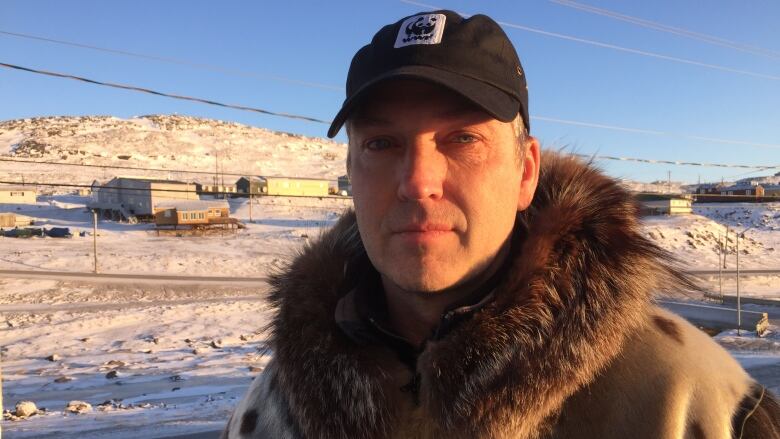Experts say environment, community balance needed to protect Nunavut coast
It cant just be lines on a map, they need to be quality protections, WWF-Canada

Justin Trudeau's Liberal government has promised to designate 10 per cent of Canada's oceans as marine protected areas, butin Nunavut,which sits on the Arctic Ocean,that means balancing environmental concerns with the needs of Inuit communities.
Currently, only 1.3 per cent of Canada's oceans are protected, but the Liberal government has promised that by next year, that number will grow to 5 per cent, and by 2020 it will be at 10 per cent.
"It's fantastic that the current governmentnot only ran on a platform, but then adopted a platform of protecting the marine environment," said Paul Crowley, the director of WWF-Canada's Arctic Program."The marine environment is really crucial in terms of our resilience to climate change, particularly in the Arctic."
Crowley said Canada needs to be looking at these ecosystems and making sure that they are protected for the future, particularly in light of climate change.
"Fish stocks are going to move, ice edges are going to move," he said."I think we need to be looking at the resilience of the ecosystem in the face of that."
In 2014, a report from theCanadian Parks and Wilderness Society found that Canada ranked last among 10 countries with the longest coastlines when it comes to how much marine area is protected from development.
"The protection of the marine environment is something that Canada has been a horrible laggard on," said Crowley, who said that environmental groups have been waiting for action on marine protected areas in Nunavut for a long time.
"People have been waiting for the protection of Lancaster Sound through the National Marine Conservation Area for over 30 years, since the 70s, when there was the oil and gas exploration,"
Not just lines on a map
Crowley added that simply designating an area as protected is not enough.
"They need to be quality protections," he said, "Canadians expect that in a protected area you won't see oil and gas development.I think that we need to ensure that all our marine protection has at the very least that."
In Lancaster Sound, oil and gas development could be possible in the future, Crowley said,with some decade-old leases that are still listed as active by Shell.
Crowley also pointed tocommercial fishing as another issue that needs to be negotiated in protected areas.
"There needs to be a minimum of 30 per cent of an area that is a no-go zone," he said."A zone where stocks can recover."
Input from Inuit needed, says fisheries minister

"The prime minister made it very clear in the campaign that meaningful consultation and duty to consult will be done and taken seriously and input from Inuit from here in Nunavut will happen," said Hunter Tootoo,Nunavut's Member of Parliament and the Minister of Fisheries and Oceans.
The Arctic Council, an intergovernmental forum for Arctic governments that includes Canada,has examined how marine protected areas across various countries relate to each other. Their goal is to create a network of protected areas to help protect marine life. As part of that work, they are consulting Inuit communities.
"This is in their backyard, so we can never lose sight of that," saidReneSauv, the chair of the marine working group of the Arctic Council."This is most relevant for all those coastal communities.
"Of course they want to make sure there's no access issues for them, in terms of their traditional activities and of course their future aspirations, too."












_(720p).jpg)


 OFFICIAL HD MUSIC VIDEO.jpg)
.jpg)



























































































